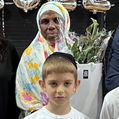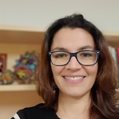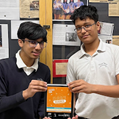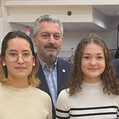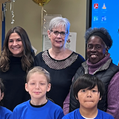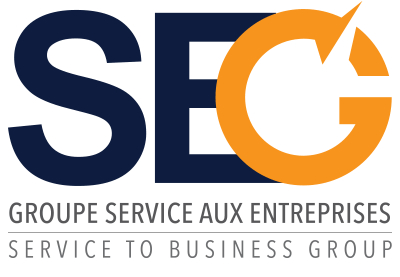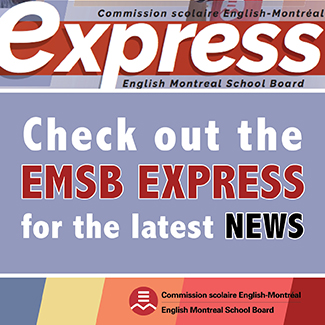Riva and Thomas O. Hecht Scholarship supporting Holocaust education continues in a new direction
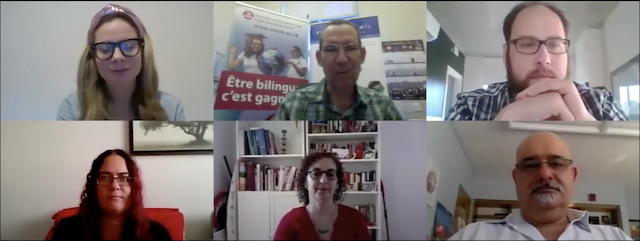
After 13 successful years of activity and the awarding of 38 scholarships to teachers working in the Quebec public school system, The Riva and Thomas O. Hecht Scholarship Program, Teaching of the Holocaust for Educators is now moving forward in new directions.
The Riva and Thomas O. Hecht Scholarship Program was designed to offer professional development opportunities to educators through the Faculty of the Yad Vashem Seminars for Educators from Abroad, International School for Holocaust Studies, which focuses on Holocaust education, and the Belfer National Conference for Educators at the United States Holocaust Memorial Museum in Washington, D.C., which teaches Holocaust-related lesson planning. The mission was to well-equip teachers to sensitize students to the facts and consequences of the Holocaust, anti-Semitism and other human rights violations.
Many of the teachers who received scholarships work at the English Montreal School Board (EMSB). While the scholarships are no longer being awarded, the EMSB will continue the initiative by connecting with scholarship recipients and sharing what they learned during their three weeks in Israel, including how they integrate Holocaust education into their curriculum and how they plan to continue moving forward.
Recently, the EMSB’s Communications and Marketing Specialist Mike Cohen spoke with four EMSB scholarship-winners. Here’s what they shared:
Donna Friedman-Perlin was the only Jewish teacher at Bancroft Elementary School in the Plateau when she came back from her trip to Israel. While her Kindergarten students were too young for Holocaust education, she took advantage of the traditions of faith-based holidays to demonstrate similarities across religions. The following year, Friedman-Perlin began teaching Grade 4. By then, the students knew she was Jewish and started asking questions about the Holocaust. This opened the door for Friedman-Perlin, along with a spiritual animator, to discuss the history of the Holocaust and read books on the topic.
“Being a Jewish teacher in the public system, I found it really special that there were so many non-Jewish teachers on my trip who found it so important that their students understand what has happened to a group of people and to continue teaching the history so that it should not be forgotten,” said Ms. Friedman-Perlin. “Especially now, when we see a lot of people fighting for human rights, be it for Black Lives Matter or Indigenous rights, we need to learn our history and how to properly treat people.”
Lev Berner teaches at Vincent Massey Collegiate in Rosemount. He attended the three-week trip to Israel as well as the Belfer National Conference. Berner was struck by the amount of history that was taught in Israel prior to addressing the Holocaust. “We really started talking about the Holocaust in the second week. It taught me that you don’t just go in and start talking about the Holocaust, you need to provide the Jewish history as a whole,” he said.
Before teaching about the Holocaust, Berner, who has never had a Jewish student in his classroom, introduces a unit on Canadian human rights where students examine something that affected positive change. Then, they study something negative, such as Vincent Massey’s refusal to allow the MS St. Louis to dock at Pier 21, which had a direct influence on the Holocaust. This opens the door to a discussion on the Jews in Europe during World War II. “The students, especially at the high school level, have a hard time understanding how hatred for the Jews spread and why the rest of Europe was complacent,” said Mr. Berner.
Audrée Ann Dupont is a French teacher at Merton Elementary School in Côte Saint-Luc, which has a large population of Jewish students. She did not know much about the Holocaust prior to receiving her scholarship. “I learned so much in Israel, especially what the country and the people have been through. The trip provided a lot of information that I needed to adapt for my younger students,” said Ms. Dupont.
Dupont and her co-English teacher introduce the history of World War II at the beginning of the year, but they wait until the spring when they have developed strong bonds with their students to introduce the harsh topic of the Holocaust. Ms. Dupont finds that having been to Israel helps strengthen those bonds as many of her students are connected to Israel in some way or have families that were directly impacted by the Holocaust.
“We start discussing human rights in February during Black History Month, talking about bullying and segregation. Then we discuss the Holocaust. Using picture books helps students to talk about it, express themselves and reflect,” added Ms. Dupont. “I strongly believe that it’s important to teach what happened and why it happened in order that atrocities like that don’t happen again.”
Ramen Khodaie is the International Baccalaureate program coordinator at Marymount Academy International in NDG. He describes the trip as everything he hoped it would be and more, from the learning to meeting Holocaust survivors. “It was like walking through the channels of history. When I came back I was extremely traumatized due to the pain people went through. Meeting Holocaust survivors was extremely moving,” he said.
In a previous article posted by the EMSB on August 16, 2016, Khodaie expressed: “…I have learnt to be able to approach the Holocaust with better vision, talk about difficult topics with age-appropriate materials and deal with deniers in a better way.”
Khodaie does not work directly with students in the classroom, however the topic is never far from his mind when speaking with colleagues and to students. He is always ready to educate people and help clarify misconceptions. Khodaie hopes to mount an exhibition on the Holocaust for students in the future.


